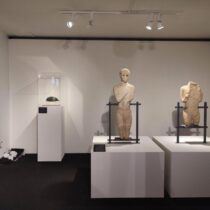The 2nd Annual International Graduate Edinburgh Byzantine Conference will focus on “Reception, Appropriation, and Innovation: Byzantium between the Christian and Islamic Worlds”.
Reception and appropriation (whether reuse, imitation, or variation) have long been recognised as necessary tools for the interpretation of Byzantine literature, art, architecture and archaeology. Innovation is a somewhat more controversial term for Byzantine Studies. During the 20th c. there were numerous attempts by prominent Byzantinists (R. Jenkins and C. Mango) to not only disassociate the concept of originality from Byzantine Studies, but also to demean Byzantine culture as a result of such a lack. The next generations of scholars have often been more careful and sensitive to the fact that today’s demands for creativity and originality have themselves been informed and moulded by a specific, Western cultural mindset over the course of, at least, the last five centuries (L. Brubaker, Av. Cameron).
Therefore, the key theme of this conference is dialogue – dialogue between Byzantium and its neighbouring cultures. This conference will be hosted by the Late Antique and Byzantine Studies Research Group of the University of Edinburgh from 30 November-1 December 2018, and will explore all three of the fundamental modes of dialogue and discourse (reception, appropriation and innovation) between Byzantium and its neighbours during any time period from the 5th-15th c. Confirmed speakers include Prof. Claudia Rapp (Vienna), Dr. Andrew Marsham (Cambridge), Fr. Justin Sinaites (Librarian of St. Catherine’s, Mt. Sinai), Prof. Jim Crow (Edinburgh), Prof. Niels Gaul (Edinburgh), Prof. Jaako Hameen- Anttila (Edinburgh) and Dr. Tom Brown (Edinburgh).
We strongly encourage papers highlighting exchange in both directions: Byzantium receiving from other cultures and/or others receiving from Byzantium. Possible topics include, but are certainly not limited to:
– Before the Christian and Islamic Worlds: reception and appropriation of Classical Greek or Latin heritage within Byzantium – cultural, textual, legislative, figurative, artistic, etc.
– Contemporary exchange and attempts at imitation (cultural, textual, legislative, symbolism etc.) between Byzantium, the Islamic World, Latin Europe and imperial courts
– Artistic similarities (visual art, sculpture, painting, etc.), whether as a result of promotion or prohibition, as an expression or mode of cultural exchange or identification across East and West
– Production, circulation and demand for luxury goods or household artefacts as evidence for dialogue and/or interaction between Byzantium and its neighbours
– Urban layout and rural landscape: military, civil and religious architecture in cities and countryside – common links and peculiarities between Byzantium and neighbouring powers
– Interdisciplinary approaches to interpretations of Byzantine (inter)action throughout the Mediterranean, taking into account multiple types of primary source evidence
The deadline for submission of abstracts is 1 August, and notification of acceptance will be communicated by mid-August. Please submit your abstract of no more than 300 words to [email protected] with your name and affiliation. There will be a small registration fee of 10£, and lunch will be provided on both days. We will aim to publish a selection of the papers in a peer-reviewed volume that will bring together the strongest contributions in each area in order to produce an edited volume of high-quality, deep coherence and rich variety.
The Organising Committee: Barber, A. Grant, M. Huggins, M. Randazzo and M. Riso






